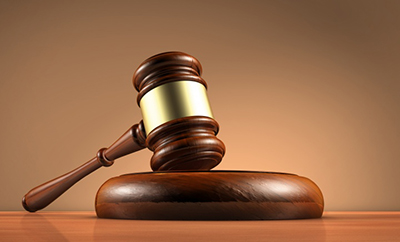Repeal of offence-creating enactment won’t automatically end accused’s prosecution- SC affirms
The apex court, speaking in the opinion of Asiedu JSC, noted that in such a situation, the Interpretation Act, 2008 (Act 792) specifically at Section 34(1)(d) and (e) will step in as the saving provision

The Supreme Court of Ghana has affirmed in an appeal case filed by Edmund Addo against the state that the repeal of an offense-creating enactment cannot automatically bring to an end an ongoing prosecution of an accused.
The apex court, speaking in the opinion of Asiedu JSC, noted that in such a situation, the Interpretation Act, 2008 (Act 792) specifically at Section 34(1)(d) and (e) will step in as the saving provision despite the said repeal.
The appellant, who is facing, among others, the charge of child pornography contrary to Section 136(b) of the Electronic Transactions Act, 2008, Act 772, sought, through his counsel, Justice Srrem Sai, to strike out the charges upon the passage of Section 98 of the Cybersecurity Act, 2020, Act 1038.
The appellant argued that upon the passage of Act 1038, whose section repealed the enactment under which he was facing prosecution, there was a need for him to be acquitted since a person could only be convicted for a crime that was written in a statute at the time of the conviction.
Counsel further argued that the Court of Appeal, which dismissed their appeal, erred in applying the interpretation Act to Article 19(11) of the constitution and also in failing to distinguish between the effect of a repeal on criminal cases and that of civil cases.
In its ruling, the Supreme Court held that per Section 34(1)(b) of Act 792, all lawful acts carried out or executed under the repealed enactment shall not be affected by the fact that the enactment under which the acts were done had been repealed.
Further, their Lordships disagreed with the appellant’s counsel per his reliance on the court in the case of British Airways & Another v. Attorney General, noting that the then interpretation Act did not have a saving clause like Section 34 of Act 792.
Moreover, the court established that even if, at the time of the repeal of PNDCL 150 by Act 516, there was in existence an enactment that had preserved or saved the law under which the accused was being tried, this court would not have declared the trial illegal, as emphasized by Dotse JSC in the Ex parte Environ Solution case.
In the end, the court held that the prosecution of the accused person is not contrary to Article 19(11) of the 1992 Constitution or any provision of the Constitution and thus dismissed the appeal.
Other members of the panel were Baffoe-Bonnie, Owusu, Amadu, and Ackah-Yensu JJSC.
Log in to Dennislaw to read the full ruling of the court.


